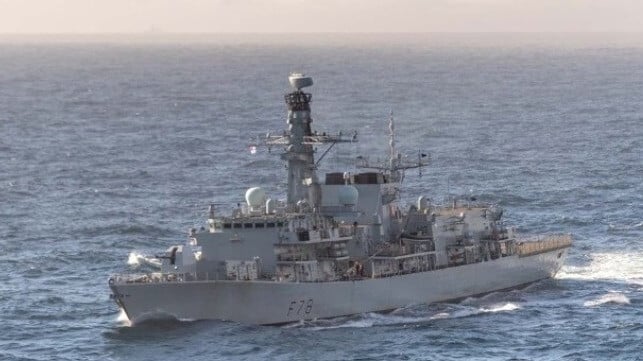UK Politician Mistakes Royal Navy Destroyer for James Bond Movie Ship

A Member of Parliament in the United Kingdom has been left with egg on the face after confusing a nonexistent vessel that featured in a James Bond movie with a real Royal Navy warship.
Conservative MP and Shadow Defence Secretary James Cartlidge tabled a written question in Parliament seeking to know the estimated amount the government intended to spend in repairing the structural damage to "HMS Devonshire." The question was directed to Secretary of State for Defence John Healey.
The UK government provided the written answer through Minister for Defence Procurement, Maria Eagle, stating “There is no ship of the name HMS Devonshire currently in service with the Royal Navy.”
Cartlidge, who was Defence Minister until last July when the new Labor Government assumed power, has found himself at the center of ridicule after it emerged the vessel Devonshire is a fictional ship in the 1997 film "Tomorrow Never Dies," starring Pierce Brosnan as 007. In the spy film, Devonshire was sunk by villains in Chinese-occupied waters in the South China Sea.
The last real Royal Navy vessel to bear the name HMS Devonshire was sunk in 1984 for target practice in the Atlantic. The guided missile destroyer was built in the early 1960s and was decommissioned in 1978.
The Sun reports that following his realization that he meant to ask about HMS Northumberland, Cartlidge joked that he intentionally made the blunder to see if the Ministry of Defence was using artificial intelligence instead of humans to answer questions. “I’m pleased to say they passed the test on this occasion,” he said.
A Type 23 frigate, Northumberland is preparing for decommissioning in March after the government said that keeping the ship in service would be too expensive. The ship was deemed “uneconomical to repair” after structural damages were discovered during a planned refit.
The UK government had estimated that it would cost at least $150 million to repair the frigate, with the decision to decommission the ship early preventing most of the cost and saving the taxpayer about $130 million.
